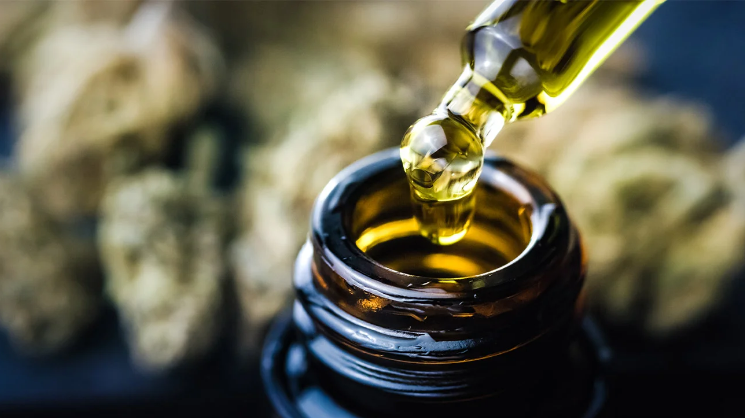CBG Oil and Mental Health: Can It Help with Anxiety and Depression?

In recent years, there has been a growing interest in cannabinoids like Cannabigerol (CBG) for their potential therapeutic effects on mental health conditions such as anxiety and depression. As a lesser-known cannabinoid derived from the cannabis plant, CBG offers unique properties that distinguish it from more widely recognized cannabinoids like THC (tetrahydrocannabinol) and CBD (cannabidiol). This blog explores the current scientific understanding of CBG Oil and its potential benefits for anxiety and depression, including mechanisms of action, research findings, methods of use, dosage considerations, and safety considerations.
Understanding CBG Oil
What is CBG?
Cannabigerol (CBG) is one of over 100 cannabinoids found in the cannabis plant. Often referred to as the “mother cannabinoid,” CBG serves as a precursor to other cannabinoids during the plant’s growth cycle, including THC and CBD. CBG is typically present in lower concentrations compared to THC and CBD, making it less abundant and more challenging to extract. However, advancements in cultivation and extraction techniques have led to increased interest in CBG for its potential therapeutic applications.
Mechanisms of Action
Interaction with the Endocannabinoid System (ECS)
CBG interacts with the body’s endocannabinoid system (ECS), a complex network of cannabinoid receptors (CB1 and CB2), endocannabinoids (produced naturally by the body), and enzymes. The ECS plays a crucial role in regulating various physiological functions, including mood, stress response, and emotional well-being.
- CB1 Receptors: Found primarily in the central nervous system, CB1 receptors modulate neurotransmitter release and influence mood regulation.
- CB2 Receptors: Predominantly located in the immune system and peripheral tissues, CB2 receptors regulate inflammation and immune response, which can impact mood and emotional stability.
CBG’s interaction with these receptors may influence neurotransmitter systems involved in anxiety and depression, although specific mechanisms are still under investigation.
CBG Oil and Anxiety
Research Findings
Research on CBG’s effects on anxiety is still in its early stages, but preclinical studies have shown promising results:
- Animal Studies: Animal models have demonstrated that CBG may have anxiolytic (anxiety-reducing) effects by modulating serotonin receptors and enhancing serotonin signaling in the brain. Serotonin is a neurotransmitter involved in mood regulation and emotional processing.
- Human Studies: Limited human studies have explored CBG’s effects on anxiety directly. However, anecdotal reports and preliminary research suggest that CBG’s interaction with the ECS may help alleviate symptoms of anxiety by promoting relaxation and reducing stress levels.
CBG Oil and Depression
Research Findings
Similarly, research on CBG’s potential benefits for depression is evolving:
- Neuroprotective Effects: CBG has shown neuroprotective properties in animal studies, which may help protect against neuronal damage and inflammation associated with depression.
- Serotonin Regulation: CBG’s influence on serotonin receptors and neurotransmitter systems suggests a potential role in regulating mood and emotional stability, which are key factors in depression.
While more clinical research is needed to establish CBG’s efficacy and safety for anxiety and depression in humans, preliminary findings underscore its therapeutic potential as a novel approach to mental health management.
Methods of Using CBG Oil for Anxiety and Depression
Sublingual Administration
- Sublingual Drops: Place a few drops of CBG oil under the tongue and hold for 30-60 seconds before swallowing. Sublingual administration allows for rapid absorption into the bloodstream, providing quick onset of effects for acute anxiety symptoms.
Ingestion
- Edibles or Capsules: Incorporate CBG oil into food or beverages, or take CBG capsules for sustained relief from anxiety and depression symptoms. Ingestion allows for systemic effects and longer-lasting relief throughout the day.
Inhalation
- Vaping: Vaping CBG oil allows for rapid absorption through the lungs, offering immediate relief from anxiety symptoms. However, vaping may pose risks to respiratory health and requires caution.
Dosage Considerations
Determining the appropriate dosage of CBG oil for anxiety and depression depends on individual factors such as tolerance to cannabinoids, severity of symptoms, and desired effects. It’s advisable to start with a low dose and gradually increase it until optimal symptom relief is achieved. Consulting with a healthcare professional can provide personalized guidance on dosage adjustments and usage.
Safety Considerations
CBG oil is generally well-tolerated, with minimal side effects reported in clinical studies. However, some individuals may experience mild adverse effects such as dry mouth, drowsiness, or gastrointestinal discomfort. It’s essential to use CBG oil responsibly and consult with a healthcare provider before starting any new supplement regimen, especially if you have pre-existing health conditions or are taking medications for anxiety or depression.
Emerging Research and Future Directions
Current Studies
Ongoing research continues to explore the therapeutic potential of CBG oil for anxiety and depression, focusing on:
- Clinical Trials: Investigating CBG’s efficacy in treating anxiety disorders such as generalized anxiety disorder (GAD) and social anxiety disorder (SAD).
- Neurobiological Mechanisms: Elucidating CBG’s mechanisms of action in modulating neurotransmitter systems and neural pathways involved in anxiety and depression.
- Long-Term Effects: Assessing the long-term safety and effectiveness of CBG Oil as a therapeutic option for managing chronic anxiety and depression.
Regulatory Landscape
The regulatory landscape for CBG and other cannabinoids is evolving, with variations in legality and accessibility across different regions and countries. While hemp-derived CBG products are legal in many areas, regulations regarding cultivation, extraction, and distribution may impact availability and consumer access. It’s important for individuals to stay informed about local laws and regulations when purchasing CBG oil products.
Conclusion
CBG oil holds promise as a potential therapeutic option for individuals struggling with anxiety and depression, offering a natural alternative to conventional treatments. While scientific research on CBG’s effects on mental health is still developing, preliminary findings suggest that CBG may help alleviate symptoms of anxiety and depression by modulating the ECS and influencing neurotransmitter systems involved in mood regulation. As research continues to expand our understanding of CBG’s mechanisms of action and therapeutic potential, CBG oil represents an exciting frontier in mental health care. Always consult with a healthcare professional for personalized advice on integrating CBG oil into your mental health regimen and maximizing its potential benefits effectively and safely. With ongoing advancements and increasing interest, CBG oil stands poised to contribute to holistic mental wellness and improve quality of life for individuals seeking natural solutions to anxiety and depression.




